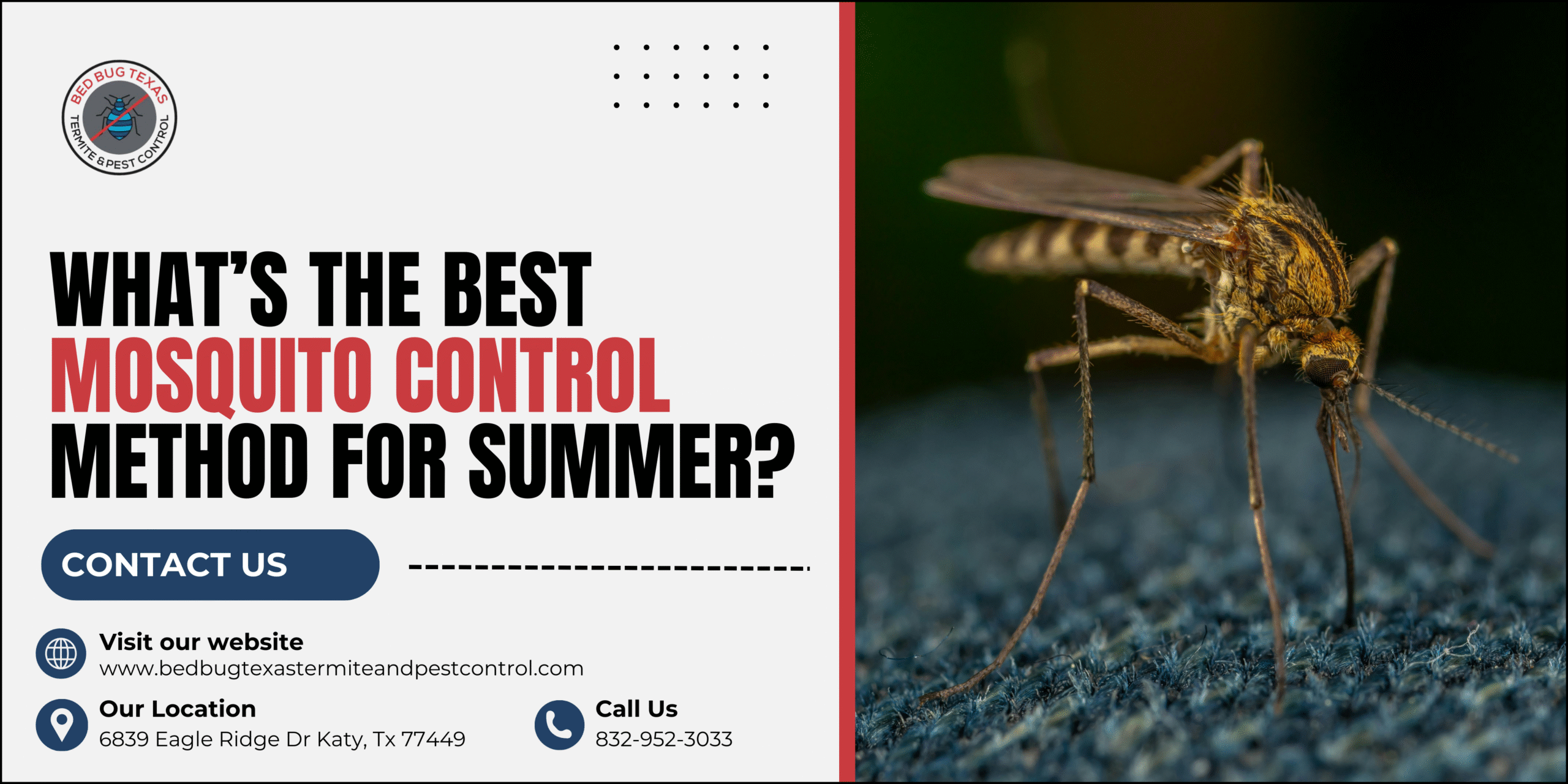
Summer evenings are perfect for barbecues, outdoor games, and late-night talks on the porch. These tiny, bloodthirsty nuisances are more than just an itchy annoyance; they can carry serious diseases and turn your yard into a feeding ground. If you’re serious about staying bite-free, let’s break down the best mosquito control methods for summer, what really works, and what’s just hype.
What Is the Purpose of Mosquitoes?
Before you reach for the best mosquito killer, it’s fair to ask: why do mosquitoes even exist? Ecologically, mosquitoes serve as food sources for fish, birds, dragonflies, and bats. Beyond that, their main purpose is to breed more mosquitoes and spread life-threatening diseases.
What Does a Mosquito Look Like?
Sounds obvious, but proper identification matters. A slender body with long, delicate legs, feather-like antennae, and a long proboscis. This is how females pierce your skin and suck blood. You’ll be surprised to know that male mosquitoes don’t bite humans at all.
Best Yard Mosquito Protection Strategies For Households
Eliminate Breeding Grounds
This is the undisputed best mosquito control cornerstone. Experts and public health authorities consistently stress: removing standing water is the most efficient strategy. Dump water from pots, birdbaths, and tires, and clean gutters.
Mosquito Dunks & BTI
If you can’t eliminate water, sabotage it. Mosquito dunks containing Bacillus Thuringiensis Israelensis (BTI) kill larvae but spare bees, fish, and pets. Research shows that this is the best method to eliminate mosquitoes while not harming pollinators.
Repellents, Clothing, and Fans
Spray defenses and barriers are your second line:
- Use EPA-approved repellents with DEET, picaridin, or oil of lemon eucalyptus that are trusted by health authorities for long-lasting protection.
- If you prefer a cleaner alternative, picaridin works “just as effectively. It has far less odor and no greasy feel.
- Wear light-colored, long-sleeved clothing, especially around dawn and dusk when mosquitoes hunt.
- Set fans around outdoor seating. Mosquitos are weak fliers; the breeze blows them away, allowing you to sit peacefully.
Natural Extras: Scents
- Dab some clove oil on wrists or neck. It is said to stop bites entirely, plus it smells delicious, too.
- Citronella candles or plants add ambiance and help confuse mosquitoes by masking your CO₂ trail.
- In ponds, introduce natural predators like guppies or dragonfly larvae to eat larvae.
Traps and Gadgets
CO₂ or UV traps help reduce numbers. And yes, that electric mosquito racquet you see everywhere? It works great indoors for instant kills, though it won’t solve outdoor infestations.
Treat Your Yard
Sprays, foggers, or professional mosquito control services can cut down adult populations. Calling in the pros is worth it if you have a serious infestation. They use stronger products and targeted strategies that last longer than DIY fixes.
Wrapping It Up
The best mosquito control method for summer is simple: prevention, protection, and elimination. Get rid of breeding sites, shield yourself with proven repellents, use effective tools like racquets for quick fixes, and call in professionals if the problem gets out of hand. Skip the gimmicks. Focus on what works, and you’ll enjoy your yard without scratching your way through summer nights.
FAQ
- What do mosquitoes eat?
It depends on the gender. Male mosquitoes only feed on nectar and plant juices. Female mosquitoes also feed on nectar but need blood meals to produce eggs.
- How long can a mosquito live?
On average, a mosquito lives 2 to 4 weeks. Males usually die within a week or two, while females can survive longer, given the right conditions.
- Do mosquitoes die after they bite you?
No, mosquitoes do not die after biting. In fact, they multiply and live to lay hundreds of eggs.
- How far do mosquitoes travel?
Most mosquitoes stay within 1-3 miles of where they hatch. However, some species, like salt marsh mosquitoes, can travel up to 40 miles in search of food.
